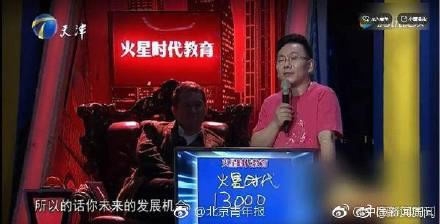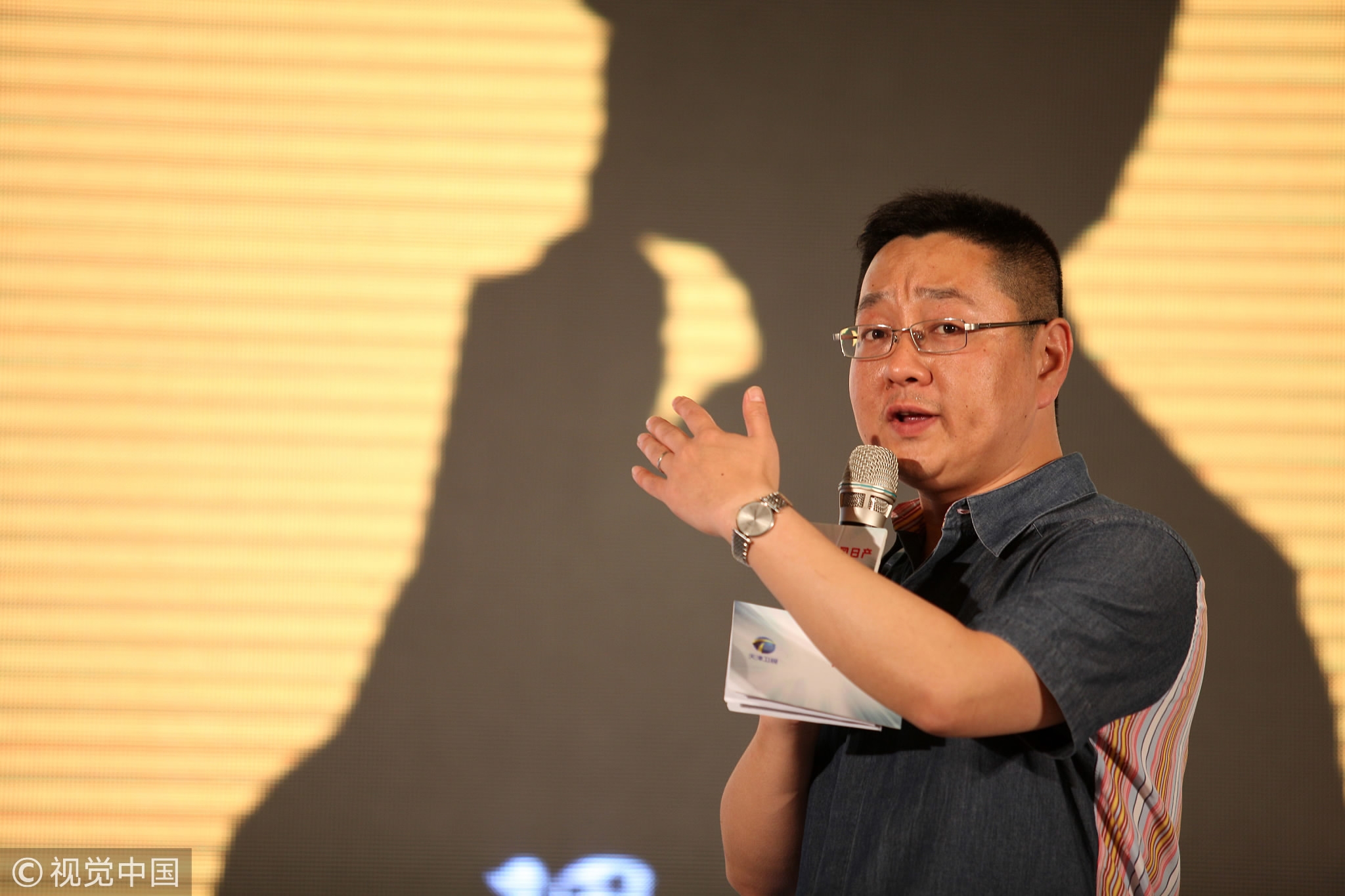
China
20:47, 04-Apr-2018
Company attending Job-hunter TV shows fell into crisis for non-compliance
CGTN

A 20-year-old tech and training institutions in China, fell into a serious reputation crisis after giving an offer to a candidates on a China’s popular hob-seeking TV reality show.
Tang Shihan, a mechanical engineering major postgraduate student from Liaoning Ligong University, in Liaoning Province, NE of China, chased her dream job on a popular job-haunting reality show, Fei Ni Mo Shu in April 2017. At the end of that episode, Yang won two offers. Almost without any hesitation, Yang accepted the offer from Huoxingshidai Tech Ltd, also named HXSD, a Chinese animation enterprise training company.

Yang decided to choose HXSD without any hesitation./Photo via Weibo
Yang decided to choose HXSD without any hesitation./Photo via Weibo
On the show, the president of HXSD, Wang Qi, promised to give 13,000 yuan (2,060 US dollars) per month to Yang as the basic salary. Even though the month salary was 1,000 yuan (158 US dollars) less than the counterpart, Baofeng, Yang still choose HXSD because of the personality of Wang and said she was excited to join the company when graduating one year later.
One year later, to better prepare for her first job, she arrived in Beijing a few days earlier than the appointed date and went through the orientation health check at her own expense.

Wang Qi, president of HXSD, promised to give 13,000 yuan as a basic monthly salary to Yang on the show./Photo via Weibo
Wang Qi, president of HXSD, promised to give 13,000 yuan as a basic monthly salary to Yang on the show./Photo via Weibo
However, when she went to the company again to submit the result of the examination, she was told that the company could only give her 4,000 yuan (634 US dollars) per month as the basic salary in the beginning. If Yang performed better in the future, the extra bonus will help her earn 13,000 yuan per month.
Yang’s experience attracted attentions as well as disputes across China, which made the company fall in to a reputation crisis.
In an open statement posted on Weibo, China’s twitter like social media, the company responded that after the episode shoot, the department structure of the company has changed a lot.
“When the current human resources director found that Yang’s major and experience did not match with the job requirement she applied for on the show, the assistant of sales operation director advised her to start the career from sales assistant”, said HXSD. Also, the company paid her 20,000 yuan (3,170.6 US dollars) as compensation.
“We still welcome Yang to join the company”, said the company in the end of the letter. However, Yang refused the company.
Besides, the statement attracted objections and furious from the public and many people thought its attitudes towards Yang reflected the culture of the company.
“It is a wise choice for Yang to not choose the company anymore. The issues reflected that the company is very bad at management and lack the spirit of contract”, commented @JiongVictorTT.
@Xiaoyueaiqingxing said that the company really delayed that girl to find a better job.
Actually, it is not the first time that job-hunting reality shows and companies attending the show fell into controversies in China.
Such shows have been popular in China since the 90s, the premise of which is to provide job-seekers with diverse job opportunities. Through conversations between the employees and the company, these shows stirred rounds of discussions about or even beyond the show s in China.
In one episode of Only You, another popular job-hunting program in 2012, a candidate felt in a faint when the authenticity of his diploma got questioned by interviewer, the hosts, Zhang Shaogang, asked him ruthlessly “are you acting?”

The host of Only You, Zhang Shaogang, also got lots of controversies since his aggressive attitudes towards the candidates on the show to enhance the effect and the contrast of the show. /Photo via VCG
The host of Only You, Zhang Shaogang, also got lots of controversies since his aggressive attitudes towards the candidates on the show to enhance the effect and the contrast of the show. /Photo via VCG
Certain viewers even pointed out that these shows had mirrored the dark side of the severe hierarchy workplace culture.
On top of that, Kai-fu Lee, the former top executive at Google China criticized it on his Weibo soon after the episode was aired on TV.
“Even if the job interviewers really think that the seeker is not good enough, they are not entitled to humiliate them”, he said.
Wang Lifen, a famous TV show producer in China, once claimed that the difference between Chinese culture and the US makes it hard to localize US success job-seeker shows, like The Apprentice in China. The host of The Apprentice, Donald Trump, can provide millions of dollars to the candidates as their annual salary. However, in China, most of the companies attending the show cannot afford that.
Does the show really help people find their dream job?
Li Shaotong, a postgraduate student from Loughborough University who attended Zhi Lai Zhi Wang in 2012, told China News that these shows really were good chances to network and to talk with executive boards of big companies directly.
However, to get a perfect offer from dream companies, job-seekers should fully prepare their resume first and find jobs via traditional methods like career fairs or job-seeker websites.

SITEMAP
Copyright © 2018 CGTN. Beijing ICP prepared NO.16065310-3
Copyright © 2018 CGTN. Beijing ICP prepared NO.16065310-3